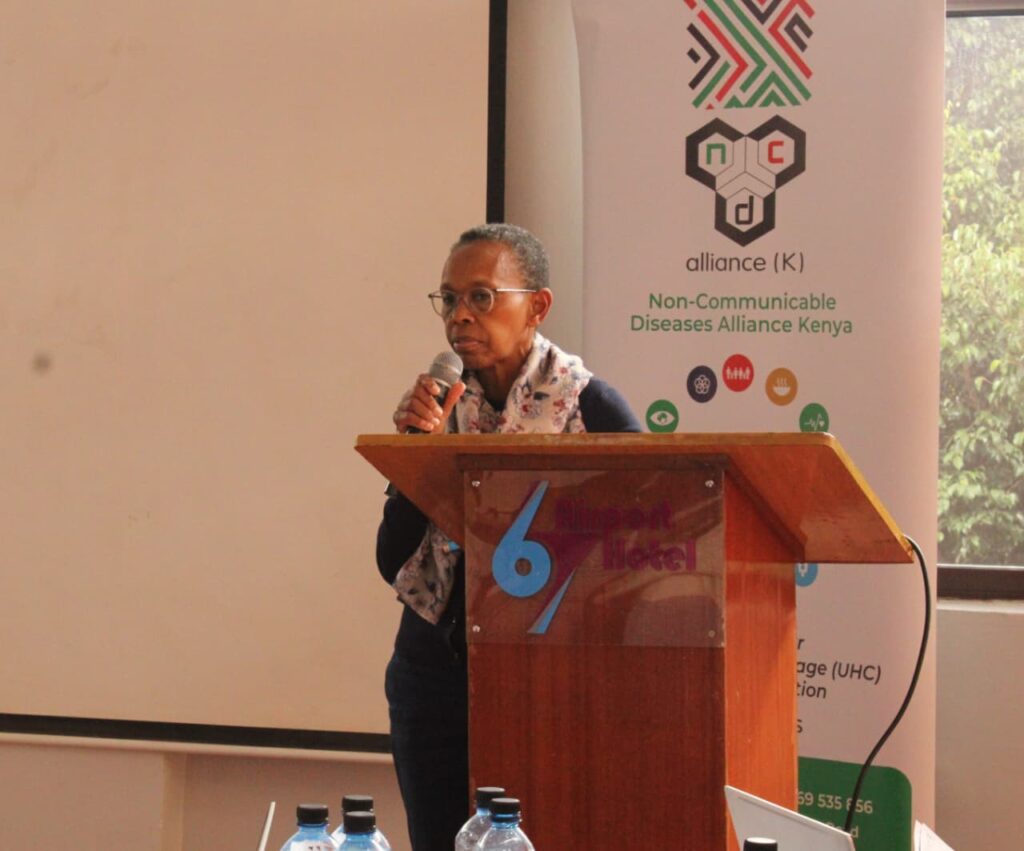By Melisa Mong’ina
Unhealthy diets are fueling the rise in non-communicable diseases (NCDs) such as diabetes, hypertension, cancer, and heart disease, accounting for more than 50% hospital admissions and over 55% deaths in Kenya annually.
In a landmark step for public health, the Ministry of Health, in collaboration with the International Institute of Legislative Affairs (IILA), NCD Alliance Kenya (NCDAK), and other key partners, has successfully advocated for and contributed to the publication of the Kenya Nutrient Profile Model (KNPM).
The KNPM will be crucial in guiding the development of food environment policies such as front-of-pack warning labels (FOPWL), marketing restrictions on unhealthy products to children, fiscal measures, and food procurement standards in public institutions.
Now available on the Ministry of Health’s website, the model, which is set to be officially launched soon, marks a significant milestone towards building a healthy food system that prioritises health over profits.

Celine Awuor, CEO of the IILA acknowledged the collaborative efforts behind the KNPM, describing it as a vital step in creating a healthier nation.
“IILA is proud to have been part of this critical journey. The KNPM sets the country firmly on the path toward introducing front-of-pack warning labels, an evidence-based tool proven to reduce demand for unhealthy products,” said Awuor.
IILA pledged continued support for policies that protect children from harmful food marketing and empower citizens with the information they need to make healthier choices.
If fully implemented, the KNPM could help reverse alarming trends in diet-related illnesses and build a healthier, more informed society.
“The successful implementation of this model will be a game-changer and a bold step towards building a healthier food system that prioritises the wellbeing of Kenyans,” she added.
According to World Health Organisation, nutrient profiling models are critical tools for identifying foods high in sugar, salt, and unhealthy fats, which are linked to rising cases of non-communicable diseases.

Dr. Catherine Karekezi, Executive Director of NCDAK, emphasized the model’s role in protecting vulnerable groups and promoting healthier lifestyles.
“The KNPM will play an important role in promoting public health by guiding regulation of food marketing and labelling. It will protect citizens, especially children, against misleading promotion of unhealthy products and encourage behaviour change toward healthy diets,” said Dr. Karekezi.
She further noted that the model provides a strong foundation for tackling Kenya’s NCD crisis.
“The Nutrient Profile Model will be critical in preventing and controlling non-communicable diseases, securing better health for both present and future generations,” she added.
By publishing the KNPM, Kenya shows its readiness to follow successful global examples like Mexico, by taking a bold step toward protecting its citizens from the burden of diet-related diseases.
